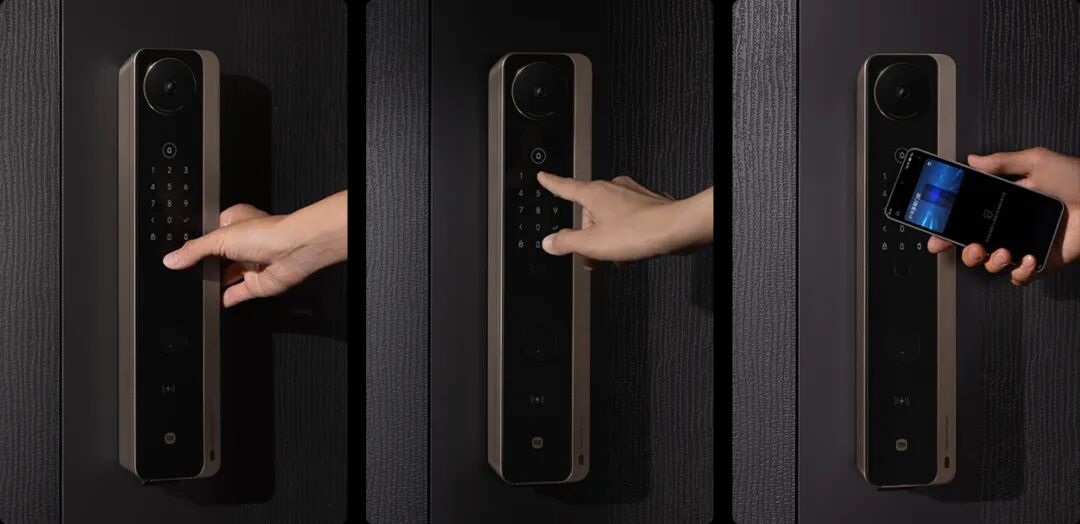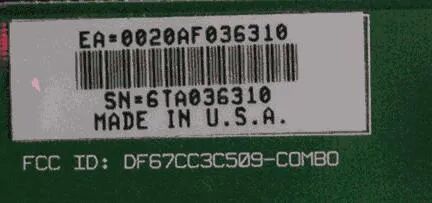The module is certified
Is separate certification required for the complete product?
This issue’s product: Smart Bluetooth Door Lock

Background of the Event
The customer manufactures electronic door locks, and the Bluetooth module inside is purchased from a supplier that has already certified the Bluetooth module with an FCC-ID certificate. Now, the customer wants to export the complete product, the Bluetooth electronic lock, to the USA. Is it necessary to apply for a separate FCC-ID certificate?

1. Core Requirements of FCC Certification
Based on the customer’s description, whether the Bluetooth electronic lock requires a separate FCC-ID certification for export to the USA needs to be comprehensively judged according to the FCC’s rules on modular device certification. The following is a specific analysis:


1. Scope of FCC-ID Application
Any electronic device with wireless transmission capabilities (such as Bluetooth, WiFi, ZigBee, etc.) sold in the US market must apply for FCC-ID certification, and the complete product must be labeled with a unique FCC identifier.

2. Special Rules for Modular Devices:
If the Bluetooth module has passed FCC-ID certification and meets the conditions for FCC Modular Approval, the complete product may not require re-certification;
If the module certification does not meet the “Modular Approval” requirements, or if the design of the complete product affects RF performance, a new FCC-ID application for the complete product is required.

2. Key Judgement Criteria

Condition 1:Does the Bluetooth module meet the FCC Modular Approval requirements?
According to the FCC KDB 996369 guidelines, the module must meet all of the following conditions to be integrated into the complete product without additional certification:
-
The module must have an independent RF shielding layer to prevent interference from external circuits;
-
The module must be equipped with a fixed antenna or standardized antenna interface (such as U.FL/IPEX), and the complete product must not change the antenna parameters;
-
The module’s power supply circuit must have a voltage regulation design to avoid voltage fluctuations affecting RF performance;
-
The module must pass all FCC tests (including transmission power, frequency deviation, spurious emissions, etc.);
-
At the time of module certification, it must declare support for “Modular Approval” (the grantee must sign a “Modular Approval Declaration”).
If the Bluetooth module provided by the supplier does not fully meet the above conditions, the complete product must reapply for FCC-ID certification.

Condition 2: Does the design of the complete product change the RF parameters of the module?
Even if the module has passed modular certification, the following situations may still require re-certification of the complete product:
-
Antenna changes: changing the type of antenna, adjusting the antenna routing or gain;
-
Circuit interference: other circuits in the complete product (such as motors, displays) generate electromagnetic interference that affects the Bluetooth frequency band;
-
Structural obstruction: a metal shell or internal layout causes RF signal attenuation beyond the original certification range of the module.

3. Specific Operational Recommendations
Scenario 1
The module meets the FCC Modular Approval requirements, and the design of the complete product has not changed the RF parameters
No need to apply for a complete FCC-ID:
You can directly use the module’s FCC-ID, but must meet:
-
The complete product label must indicate the module’s FCC-ID (format: FCC ID: XXXXXXXXX);
-
The user manual must state: “This device contains a compliant RF module with FCC ID: XXXXXXXXX”;
-
The complete product must pass FCC Part 15B testing (EMC testing) and apply for FCC SDoC certification (compliance declaration for the non-wireless part).
Scenario 2
The module does not meet the Modular Approval requirements, or the design of the complete product affects RF performance
Must apply for a complete FCC-ID:
The Bluetooth RF parameters (Part 15C) and EMC (Part 15B) must be retested for the complete product, with the following process:
-
Submit an application to a TCB (Telecommunication Certification Body) in the USA;
-
Provide the original FCC-ID certificate and test report of the module (to reduce some testing items);
-
Complete RF and EMC testing for the complete product;
-
Obtain a dedicated FCC-ID for the complete product and label it on the product.


4. Compliance Risk Alerts
Alert 1
Risk of incorrectly citing the module’s FCC-ID:
If the complete product does not meet the Modular Approval conditions and directly uses the module’s FCC-ID, it may be detained by customs or face FCC penalties (up to $21,928 per day).
Alert 2
Labeling and documentation requirements:
Even if exempt from complete FCC-ID certification, ensure that labels and manuals comply with FCC rules, or it may be deemed non-compliant.

| Key Factors | Does the complete product need FCC-ID? | Operational Requirements |
| The module meets FCC Modular Approval requirements | No | Label the module’s FCC-ID + apply for FCC SDoC (Part 15B) |
| The module does not meet Modular Approval requirements | Yes | Retest the complete product (Part 15B+15C) and apply for a dedicated FCC-ID |
| The design of the complete product affects RF performance | Yes | Retest the complete product (Part 15B+15C) and apply for a dedicated FCC-ID |
If you want to learn more about FCC-ID certification, please contact the editor via WeChat: 18823336811, Ms. Tan